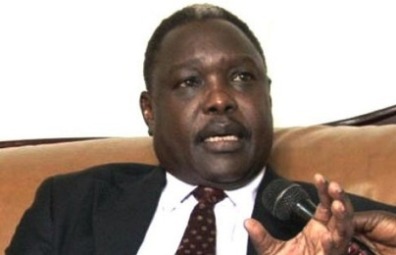South Sudan denies surrendering sovereignty by accepting foreign troops
August 7, 2016 (JUBA) – South Sudanese government under the leadership of President Salva Kiir has denied surrendering the country’s sovereignty to a foreign force after accepting their deployment in Juba despite President Kiir’s earlier repeated vows that not even a “single” additional foreign soldier will be allowed to enter South Sudan.

Point number 11 of the IGAD communiqué reads: “Calls upon the UN Security Council to urgently extend the mission of UNMISS with a revised mandate including the deployment of the Regional Protection Force with distinct responsibilities under the direct command of a commander who will report to the overall UNMISS Force Commander, to be based in Juba.”
But the government in their new explanation to their reversed position by accepting foreign troops deployment in Juba however said the troops’ deployment will not amount to surrendering the sovereignty of the country.
South Sudanese cabinet affairs minister, Martin Elia Lomoru, told Sudan Tribune on Sunday that the decision of the government to accept deployment of additional foreign troops to the country does not undermine the national sovereignty of the country because the government will participate in future discussions before actual deployment takes place.
“The position of the government was clear and remained clear until it was understood by the region. The government categorically rejected the deployment of intervention force and this was explained at the summit. So what has been accepted in principle is simply the deployment of protection force to protect Internally Displaced Persons, NGOs and members of Joint Monitoring and Evaluation Commission (JMEC),” Lomuro explained.
“There is no intervention force. The Mandate, funding and size shall be negotiated. This was outcome of the summit and the communique is already for members of the public to access. It is already in the media. So there is no question of surrendering the national sovereignty here,” he said.
The cabinet minister who leads political parties allied to the government also said the replacement of Riek Machar with Taban Deng Gai was solely an internal affairs of the Sudan People’s Liberation Movement in Opposition (SPLM-IO).
“There were people [who] were trying to associate the government to changes within IO, which was not true. The IO leadership convened their meeting at which they made their own decision to replace Riek Machar because he was not anywhere in Juba and was not communicating with anyone. He was [not] communicating with either president or even the IO leadership. This created a vacuum that affected implementation schedules of the agreement. And by the way, the agreement was not signed between individuals and by parties, so the absence of one person cannot hold the implementation,” he claimed.
However, officials of the SPLM-IO loyal to Machar said the action was violating article 6.5 of the peace agreement and that the process to nominate Gai, who was already dismissed from the party a day before convening the nomination meeting, did not qualify as there was no quorum for either political bureau or the national liberation council that discussed the alleged internal change.
They said it was a conspiracy cooked by both President Kiir and Gai to use Machar’s temporary absence to remove him, adding that the two men have a mutual understanding to scrap key provisions in the agreement including security arrangements, with the aim to dismantle the whole peace agreement and return the country to war.
Also, IGAD in their communiqué point number 15 said they “noted” the government position that the leadership change was an internal business of the SPLM-IO, but called on the new first vice president, Gai, to step down so that Machar is reinstated to his position.
“In this respect, [IGAD] welcomes the gesture of H.E. General Taban Deng Gai to step down with a view of returning to the status quo ante in line with the ARCSS for the sake of peace and stability in the Republic of South Sudan.”
Machar’s spokesperson earlier said their leader will return to Juba after Gai steps down and the third party force is deployed in Juba.
(ST)
